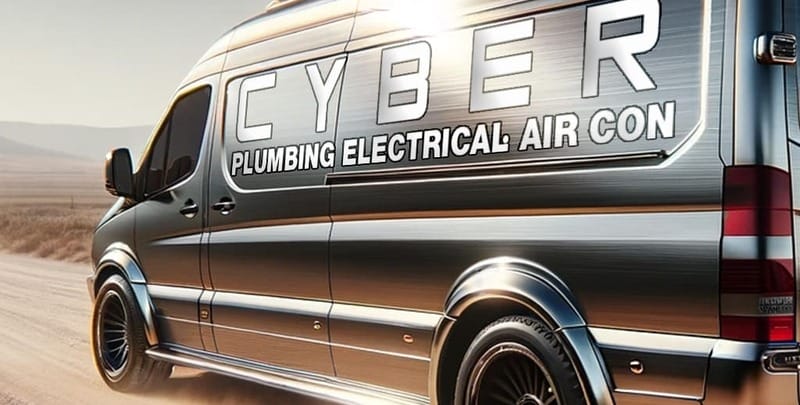
Who Do I Call If There’s a Gas Leak in My House?
Discovering a gas leak in your home can be a frightening experience, but knowing how to handle it can make all the difference.
Gas leaks are not only dangerous but can also lead to serious consequences if left unchecked. From the faint smell of sulphur or rotten eggs to hissing sounds near gas appliances, the signs of a natural gas leak can vary, but one thing remains constant − immediate action is crucial.
In this guide, we’ll explore the steps you need to take if you suspect a gas leak in your house. From identifying the signs of a leak to understanding who to call for help, we’ll cover everything you need to know to keep your household safe. So, whether you’re a new homeowner or a seasoned pro, let’s dive into the essential information you need to protect yourself and your loved ones in the event of a gas leak.
Identifying a Gas Leak
When it comes to gas leaks, early detection is key to ensuring safety in your home. But how can you tell if there’s a gas leak lurking in your midst?
Keep your senses sharp. If you catch a whiff of something like rotten eggs or sulphur, that’s a big red flag. Gas companies add a distinct odour (a chemical called mercaptan) to natural gas to make leaks easier to detect.
Another tell-tale sign is a hissing or blowing sound near a gas appliance (such as gas heaters, gas hot water system or gas stoves) or pipeline. Sometimes, you might even notice dead or dying plants near the gas line outside.
Feeling lightheaded, nauseous or dizzy without any other apparent cause could also indicate a gas leak affecting your indoor air quality. With a slow leak, you might also notice a difference in your gas bill when your usage hasn’t increased. If you notice any of these signs, it’s crucial to act swiftly and take precautions. Don’t ignore your instincts − if something feels off, it’s better to be safe than sorry.
Immediate Steps to Take
Here’s a list of steps to take if you suspect a natural gas leak in your home:
- Evacuate safely: If you suspect a natural gas leak, get everyone out of the house immediately. Don’t stop to gather belongings or investigate further. Your safety is top priority.
- Avoid ignition sources: Steer clear of anything that could spark a flame or create a spark, such as lighting matches, using light switches, or operating electrical appliances. Even a small spark could ignite the gas, leading to a potentially catastrophic situation.
- Ventilate the area: Once you’re safely outside, open doors and windows to allow fresh air to enter the house. This helps to dissipate the gas and reduce the risk of ignition. Avoid turning on fans or anything that could create a draft, as this might spread the gas around.
- Turn off the gas: Turn your gas supply off at the gas meter. Be prepared: Make sure you know where the gas meter is. This will shut down your main gas line.
- Don’t use phones or electronics: Refrain from using phones, electronic devices or anything that could generate a spark while you’re still in the vicinity of the suspected leak. Instead, use your mobile phone (or a neighbour’s phone, if necessary) when you’re a safe distance away to call for help.
Contacting the Authorities
When you’re faced with a potential gas leak, it’s crucial to get in touch with the right people who can help mitigate the situation quickly and effectively.
Here’s what you need to know:
- Emergency numbers: The first step is to call the Australian Gas Networks gas leaks hotline (1800 427 532), your gas supplier or 000. These numbers are staffed 24/7, so you can get immediate assistance no matter the time of day.
- Provide information: When you call, be prepared to provide essential information such as your address, the nature of the problem (suspected gas leak), and any relevant details about what you’ve observed or experienced. This helps emergency responders assess the situation and prioritise their response.
- Cooperate with responders: Once you’ve made the call, follow any instructions given by the emergency dispatcher or responders. They may advise you to stay away from the area or take additional precautions until help arrives. Cooperation is key to ensuring everyone’s safety.
Seeking Professional Help
After contacting the authorities and ensuring everyone’s safety, the next step is to seek assistance from a qualified professional who can assess and address the gas leak.
Here’s what you need to consider:
- Licensed gas technician: Contact a licensed gas technician or plumber who specialises in gas line repairs. These professionals have the expertise and equipment needed to safely identify and fix the source of the leak.
- Importance of professional inspection: A DIY approach to fixing a gas leak is not recommended due to the potential dangers involved. Professional technicians can conduct a thorough inspection of your gas lines and appliances to pinpoint the exact location of the leak and determine the best course of action.
- Preventative measures: In addition to repairing the immediate issue, a professional can also provide recommendations for preventing future leaks. This may include regular maintenance of gas appliances, installation of gas detectors, and ensuring proper ventilation in your home.
By seeking help from a qualified professional, you can ensure that the gas leak is addressed safely and effectively, minimising the risk of further harm to you and your household.
Safety Measures and Precautions
Ensuring gas safety in your home goes beyond just knowing who to call in an emergency. Here are some important safety measures and precautions to keep in mind:
- Regular maintenance: Schedule regular inspections and maintenance for your gas appliances and heating systems. This helps to identify and address any potential issues before they escalate into major problems.
- Install carbon monoxide detectors: Carbon monoxide (CO) is a deadly gas that can be produced by faulty gas appliances. Install CO detectors in your home, especially near bedrooms and common living areas, to alert you to any dangerous levels of CO, which can lead to carbon monoxide poisoning.
- Educate household members: Make sure everyone in your household knows how to recognise the signs of leaking gas and what to do in case of an emergency. Practice evacuation drills and discuss safety protocols regularly.
- Ventilation: Ensure proper ventilation in your home, especially in areas where gas appliances are located. Good airflow helps to prevent the build up of gas and reduces the risk of leaks.
By following these safety measures and precautions, you can help to protect yourself and your loved ones from the dangers of natural gas leaks.
Prioritise Safety at Home
Discovering a gas leak in your home can be a stressful experience, but knowing how to respond is essential for your safety. By promptly evacuating the premises, contacting the authorities and seeking assistance from qualified professionals, you can mitigate the risks associated with gas leaks and prevent potential disasters.
Additionally, practising safety measures such as regular maintenance of gas appliances, installing carbon monoxide detectors, and educating household members about gas safety protocols can further safeguard your home.
Remember, when it comes to gas leaks, it’s always better to err on the side of caution. Don’t hesitate to reach out for help if you suspect a gas leak and prioritise safety above all else. With the right knowledge and preparedness, you can effectively handle gas leaks and ensure the well-being of yourself and your loved ones.
Stay vigilant, stay safe and don’t hesitate to take action if you suspect a gas leak in your house.
Please note: This information is provided for advice purposes only. Regulations differ from state to state, so please consult your local authorities or an industry professional before proceeding with any work. See Cyber Air Conditioning’s Terms & Conditions here.
